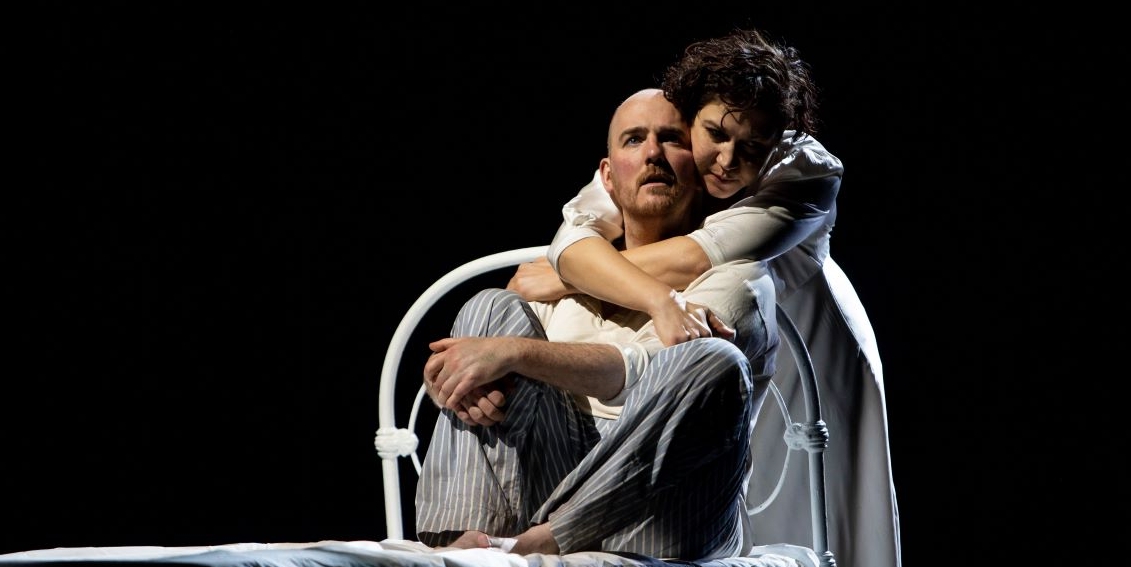Macbeth (an undoing) is a well-meaning attempt to recentre William Shakespeare’s famous tragedy on the figure of Lady Macbeth (Nicole Cooper), as opposed to her titular husband (Adam Best). Writer/director Zinnie Harris sticks broadly to the original plot (if not the language) through the first couple of acts, but remakes the second half of the play with a focus on Lady Macbeth.
While the ambitions of the play are wholly laudable, the result is rather less so. In Harris’ hands, Lady Macbeth becomes little more than a put-upon administrator in the latter stages of the play. She appears to have more agency than in Shakespeare’s version, but does little with it. Macbeth (an undoing) doesn’t seem to know quite what it wants from this reimagined figure – possibly because the original is already one of theatre’s great characters – leading to a second half that goes round in circles.
With all the rewriting, a number of plot points must be perplexing and possibly incomprehensible to anyone who does not know the source material relatively well. Some staging choices are equally confusing, and both lead to key moments being easily missed, making later scenes seem positively puzzling. The sporadic breaking of the fourth wall – used to good effect at the beginning and then seemingly forgotten about before lurching back into action much later – feels too random to have any great impact.
The choice to interweave modern language throughout the original dialogue buys a couple of laughs early on, but quickly wears thin. Indeed, the chopping and changing between contemporary and Shakespearean speech has the effect of nullifying the power of some of theatre’s great monologues. Without the time to grow accustomed to the rhythms and vocabulary of the Shakespearean language, it becomes hard to follow, while the modern dialogue sometimes sounds underwritten by comparison.
There are some nice touches. A subplot between Lady Macduff – played with wonderful verve by Jade Ogugua – and Banquo (James Robinson) adds a genuinely new spin on things. Indeed, Lady Macduff is an excellent example of an underwritten female character given new life by Harris’ reimagining. The witches, led by a gripping Liz Kettle, are also given fresh depth by the play, with an elegant nod to the idea that many of the women murdered as witches were in fact knowledgeable healers.
The Lyceum has good form with staging versions of classics – The Winter’s Tale in 2017, Pride and Prejudice* (*sort of) in 2020 – which challenge and bring something new to the original. Unfortunately, Macbeth (an undoing) just comes across as somewhat confused, a well-intentioned effort that ends up chasing its tail. It is possible that choosing to rehabilitate Lady Macbeth – already a complex, three-dimensional, fascinating character – made the task of rewriting the story too challenging. We finish with the same end result as the original play, and none the wiser as to the reasons for the detour.

